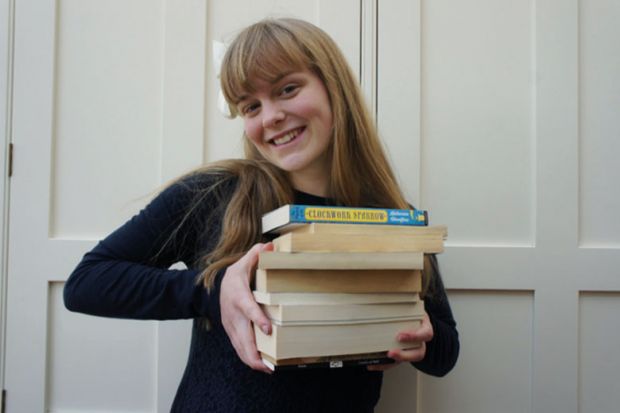As well as preparing prospectuses and hosting open days that show off their campuses, universities across the world are recognising the power of student influencers to sway prospective applicants’ decisions to attend university.
There’s a niche for everything on YouTube, from lottery scratchcard collectors to boiled sweet makers, and academic YouTube is no different. Some of the biggest names on the video-sharing site juggle uploading videos with their studies, and often talk about their on-campus experience on camera.
Creators like Durham University student Jack Edwards and University of Cambridge student Ibrahim Mohammed have over 100,000 subscribers, while University of Exeter student Ruby Granger has nearly 300,000 – all watching their every video. As a result, they are more powerful marketing tools than most other methods of reaching students, argues Simon Clark, a former University of Oxford master’s student, current PhD candidate at the University of Exeter and influential YouTuber.
“If you were to biologically create a weapon to target university applicants, you’d get the student vlogger,” he said. “In terms of a match of medium and audience, it’s absolutely perfect, and much more attuned to the audience than traditional university outreach techniques.”
Part of the power of student YouTubers is their connection with their audience. The site is the most-watched medium for 18-year-olds, according to research agency Kids Insights, and its stars can claim extraordinary sway over their viewers. The personalised, parasocial relationship YouTubers have with their audience (who consider them more friends than celebrities) makes their word more powerful than any traditional marketing material.
On a purely practical level, they also offer a much-needed resource. Mr Edwards has a significant number of viewers from abroad, who use his videos as a virtual tour of Durham and its campus. “Not everyone has the opportunity to fly over” from overseas, he said.
“My theory has always been that applicants will associate [official marketing materials] with institutions pushing them a product – whereas vloggers are perceived as being truthful,” said Mr Clark, who unsuccessfully tried to convince Oxford to partner with him back in 2013, when he started making videos answering questions his fans had about life at the university. The student vloggers are “just going about their lives and telling it how it is,” he added.
And that honesty can have a massive impact. Mr Clark said “dozens” of students at both Oxford and Exeter have approached him and said that his videos about each university helped convince them to apply.
“With Oxford in particular there have been more cases of people applying after thinking it was worth it after seeing my videos,” he said. “A lot of the time I reassure people about their decisions rather than changing their minds.”
The challenge for universities is how to harness that power without compromising it. Popular influencers can charge thousands of pounds for mentioning a brand on their channel and can be notoriously cagey about relinquishing editorial control of their content.
Mr Edwards was approached by Durham’s marketing department but decided to turn down a formal partnership with the university. “I made a decision to keep it completely separate, so it was a completely authentic, honest and reliable perspective about what the university actually is like,” he said.
Eve Bennett, an Oxford fresher, carries a camera with her to college breakfasts and lectures. The flashy videos act as a prolonged advert for the university to Ms Bennett’s international audience, but are also frank about the downsides of a degree at a prestigious university. A recent video criticised the workload and structure of her course.
However, Ms Bennett has worked with the university, including informal “takeovers” of her college’s Snapchat account to expand its audience.
Other universities have worked more closely with student vloggers. Temple University in Philadelphia hired Brandon Kane, a film and media arts student, as its first paid vlogger in January 2017.
De Montfort University has enlisted a team of students who also have YouTube accounts to produce videos for the institution. “YouTube is somewhere prospective students are spending a lot of their time,” said Paul Hindle, senior communications manager at De Montfort.
The university paid the vloggers a “very small part of the marketing budget, considering the impact it had,” he added.
And the University of Lincoln has regularly attended a YouTube convention, Summer in the City, bringing popular vlogger and recent Lincoln graduate Alice Thorpe, to visit their stand. Thorpe was also paid by the university to visit open days and vlog, as well as take over their Snapchat account.
“I had quite a lot of control, and they weren’t too fussy with what I did,” she said. “They trusted that what I was doing was getting reach.”
Few universities co-opt the pulling power of YouTubers for fear of losing control, Mr Hindle suggested. “I think it feels like a risk – that you’re giving the keys away. It’s no longer the official voice. That’s a mental hurdle to get across.”
But it can reap dividends. “I used to joke I should get a commission for every person who said they picked Lincoln because of me,” said Ms Thorpe.
后记
Print headline: Universities switch on to YouTubers




